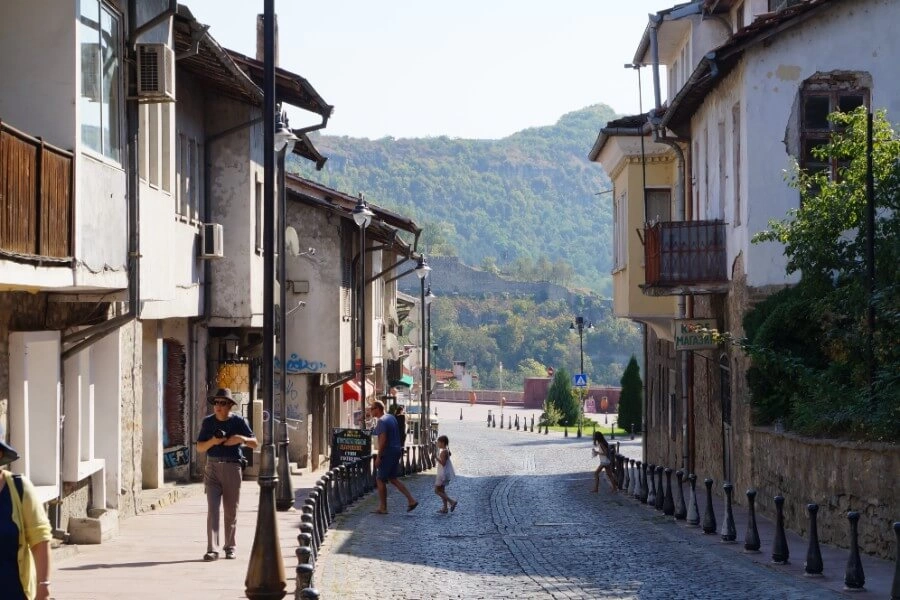Bulgaria’s tourism industry is steadily shifting toward sustainable models that benefit local communities. A key resource for this evolution is the Handbook of Good Practices in the Tourism Sector, which outlines alternative tourism methods—such as creative, community-based, and circular tourism—to support local socio-economic growth and environmental protection.
Though the original PDF may contain non-searchable text, the handbook echoes broader national trends documented in Bulgaria’s tourism policy and sectoral analyses.
What the Handbook Covers
- Alternative Tourism Forms: Creative tourism (workshops, arts, cultural participation), community-based tourism, eco-tourism, and circular economy models rooted in local resources and regional identity.
- Local Economic Support: Strategies for integrating crafts, local food, heritage storytelling, and festival-based economies that uplift rural and remote areas.
- Circular Tourism Practices: Operational guidelines for adopting waste reduction, energy efficiency, water management, and local procurement in tourism businesses.
Core Themes & Practices
1. Community-Based & Creative Tourism
Empowers residents to lead experiences—such as cooking classes, folk crafts, storytelling, and homestays—that directly benefit local communities. This fosters authenticity and stronger visitor‑community ties.
2. Circular Economy Integration
Promotes:
- Waste reduction in hotels via separate collection and biodegradable supplies
- Food waste reuse (e.g. stale bread converted to breadcrumbs or compost) and eco-transport on-site
- On-farm renewable energy systems (e.g. biogas from organic waste) and hotel solar installations.
3. Economic Regeneration
Highlighting tourism’s role in rural development, encouraging year-round employment through small-scale lodging, cultural festivals, and creative experiences.
4. Governance & Institutional Support
Institutional frameworks support sustainable tourism including crafting local destination management organizations (DMOs) and providing legal tools, public registers, financial incentives, and recognition for green operators.
Real-World Examples
The handbook references successful Bulgarian implementations of circular sustainability:
- Marina Grand Beach Hotel (Golden Sands): Introduced solar hot water, energy-efficient appliances, staff eco-transit, local organic sourcing, and guest towel reuse systems.
- Hotel Yastrebets (Borovets): Adopts energy-saving heating, linen change on-demand, digital document systems, and locally sourced food products to cut waste and emissions.
- Albena Resort Complex: Powers over 50% of its energy via solar and biogas, and produces over 60% of served food on its own farms—featuring mobility restrictions to limit motor vehicles.
- Karlovo Municipality: Integrates history, rose cultivation, crafts, and eco-tourism into a single experience. Known for its connection to Bulgarian national hero Vasil Levski and its rose oil production, the municipality offers cultural heritage trails, rural and agri-tourism, crafts and folklore festivals.
- Aqua Hotel Zlatograd: a modern facility rooted in local traditions and sustainability incorporating: renewable energy systems (solar collectors for hot water), waste reduction policies (no single-use plastics, towel reuse program) and wellness services using locally sourced herbal products
- Lukovit Municipality: Transformed the Iskar-Panega Geopark into a key example of eco and geotourism in Northern Bulgaria. The geopark offers a blend of natural wonders, such as karst rock formations, caves, and walking paths.
Why This Handbook Matters
- Holistic Development: Balances economic, environmental, and social objectives in destination planning.
- Local Empowerment: Prioritizes local goods, services, communities, and SMEs in tourism growth models.
- Scalability: Offers practical, replicable models—from eco‑high‑end hotels to community-based villages and cultural experiences.
- Policy Alignment: Fits national tourism strategies, EU circular economy goals, and UN SDG frameworks.
In Summary
The Handbook of Good Practices offers a comprehensive toolkit for transitioning Bulgarian tourism toward sustainable, inclusive, and circular approaches. By blending creative tourism, community participation, circular resource management, and supportive governance, the guidelines offer actionable models that benefit local economies and preserve Bulgaria’s heritage and environment.

